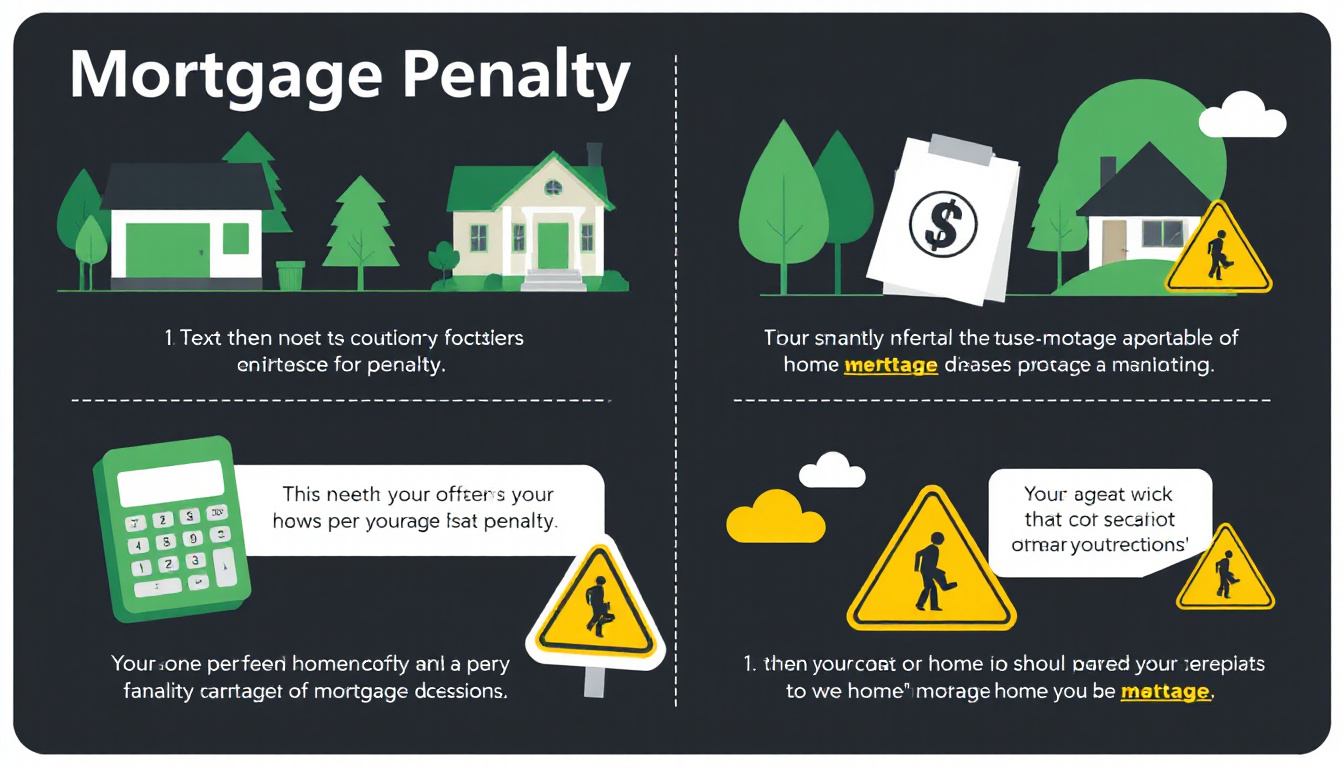Navigating the landscape of mortgages can be daunting for many Canadians, particularly when it comes to understanding mortgage penalties. Knowing how do mortgage penalties work can save you significant costs and help you make informed decisions about your mortgage. These penalties can apply in various circumstances, often catching unsuspecting borrowers off guard. In this article, we will delve into the definition of mortgage penalties, the different types that exist, and provide actionable tips to help you avoid incurring these unnecessary fees. Whether you’re a first-time homebuyer or looking to refinance, understanding mortgage penalties is a crucial step in managing your financial journey.

Key Takeaways
- Mortgage penalties are fees charged for paying off your mortgage early or breaching your mortgage agreement.
- There are different types of mortgage penalties, including prepayment penalties and discharge penalties, each affecting borrowers differently.
- Understanding the terms of your mortgage can help you avoid unexpected penalties.
- Consider seeking mortgage options with flexible payment terms to minimize the risk of incurring penalties.
- Regularly reviewing your financial situation can prepare you for potential penalties and help you mitigate costs.
What Are Mortgage Penalties and When Do They Apply?
Mortgage penalties are fees charged by lenders to borrowers who pay off their mortgage before the end of the loan term. Understanding how do mortgage penalties work is crucial for any homeowner, especially those considering early payments or refinancing. In Canada, these penalties can vary significantly based on the type of mortgage and the lender’s policies. There are typically two main types of penalties: the three-month interest penalty and the interest rate differential (IRD) penalty. The three-month interest penalty is simpler and involves paying interest equivalent to three months of payments. In contrast, the IRD penalty may be more complex, as it takes into account the difference between your current mortgage rate and the rate available to the lender at the time of early repayment. Borrowers should carefully review their mortgage agreements and consult with their lenders to understand when these penalties apply, as they can substantially impact your financial situation when deciding to sell, refinance, or even pay off your mortgage sooner than planned.
Types of Mortgage Penalties You Should Know
When considering a mortgage, it’s essential to understand how do mortgage penalties work, especially if you plan on refinancing or selling your home before the end of your mortgage term. There are generally two types of mortgage penalties in Canada: the prepayment penalty and the discharge fee. The prepayment penalty is applied when you pay off your mortgage or make additional payments exceeding your allowed annual limit. This penalty can often be calculated using either the Interest Rate Differential (IRD) method or the three-month interest method, with lenders typically using the method that results in a higher penalty. The discharge fee is a cost you may incur when fully paying off your mortgage, which involves administrative costs linked to the lender releasing their claim on the property. It’s crucial for potential homebuyers to inquire about these penalties with their lender, as they can significantly affect your overall mortgage costs and financial flexibility.
‘In the world of finance, knowledge is power, and understanding the intricacies of your mortgage can save you from unnecessary penalties and costs.’

Tips for Avoiding Costly Mortgage Penalties
When considering a mortgage, it’s crucial to understand how do mortgage penalties work to avoid unexpected costs. Mortgage penalties typically come into play when you break your mortgage contract before its term ends, which can occur if you sell your home, refinance, or pay off your mortgage early. The two common types of penalties in Canada are the interest rate differential (IRD) and the three-month interest penalty. The IRD calculates the difference between your existing mortgage rate and the current market rate, in addition to potential costs based on the remaining balance of your loan. To avoid costly penalties, consider choosing a mortgage with prepayment privileges that allows extra payments towards the principal without fees, or explore fixed-rate mortgages with flexible terms. Additionally, thoroughly review your mortgage agreement and consult with your lender to understand the potential implications of breaking your mortgage early, ensuring you make informed decisions that protect your financial health.
